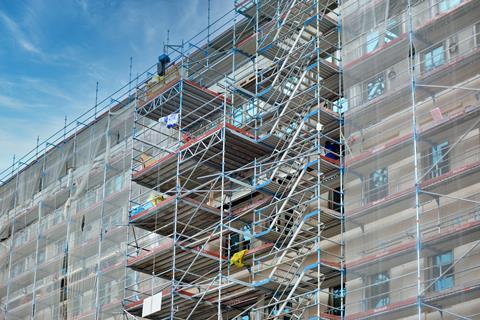Latest official figures reveal scale of work still to be done to make high rise housing blocks safe
Only one in four high rise residential buildings found to contain unsafe cladding have had their remediation works completed seven years after the Grenfell Tower fire.
The latest government figures show 1,088 buildings above 11 metres have been made safe out of the 4,374 identified to be at risk.
Overall, 2,066 buildings, just under half of the total, have either started or completed their remediation works.

It comes following a huge increase in the amount of buildings within the Department of Levelling Up, Housing and Communities’ (DLUHC) building safety programme, from 509 in September 2023 to 2,308 in May 2024.
This is because from October last year the department combined remediation progress from multiple schemes, including the building safety fund, the ACM programme, the cladding safety scheme, developer remediation contracts and as reported by registered social housing providers.
Out of this total, 1,569 buildings above 11 metres are under the developer remediation programme, but less than half of these, 46%, have either started or completed remediation work.
Only 40% of the 1,974 affected buildings in the social housing sector have started or completed remediation as of last month, and only 13% have completed remediation.
>>See also: Repairs spend up 15% as social housing providers prioritise mould and building safety
>>See also: We are entering a new era for building safety - but are we ready for the new regulator?
DLUHC also revealed that local authorities have taken or are taking enforcement action against 389 high rise buildings with unsafe cladding as of 24 May 2024, an increase of 16 since the end of April.
The Grenfell Inquiry’s final report is expected to be published on 4 September this year.
Criminal trials into the fire, which killed 72 people in 2017, are not expected to begin before 2027.










No comments yet